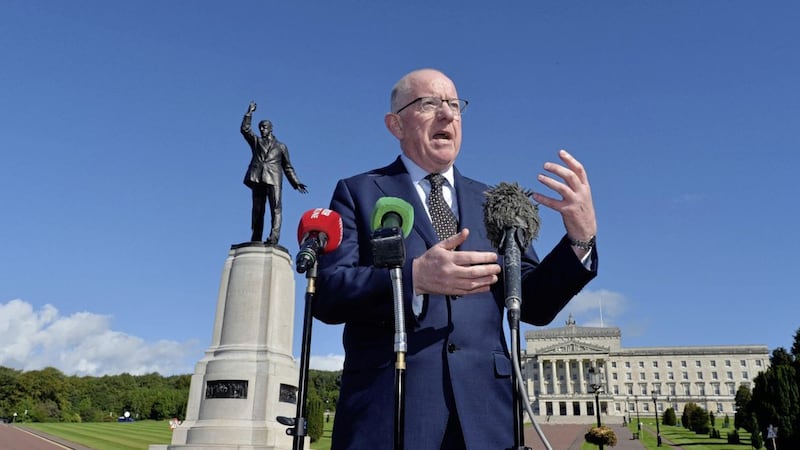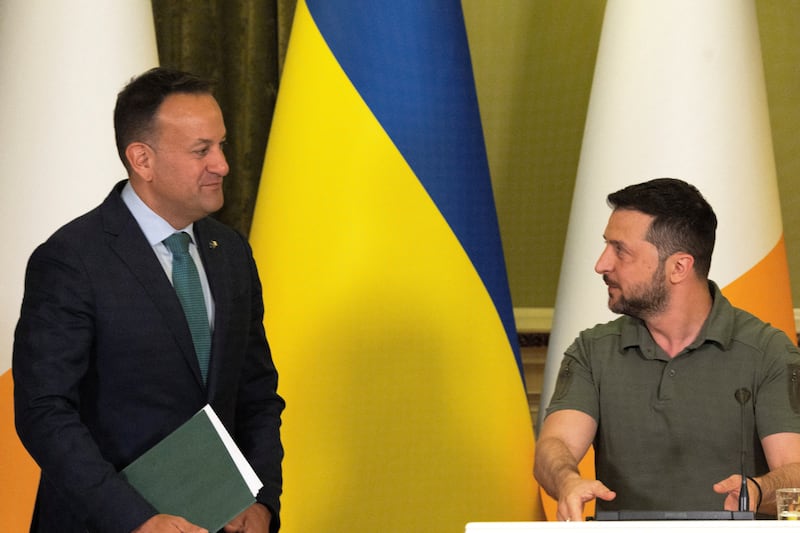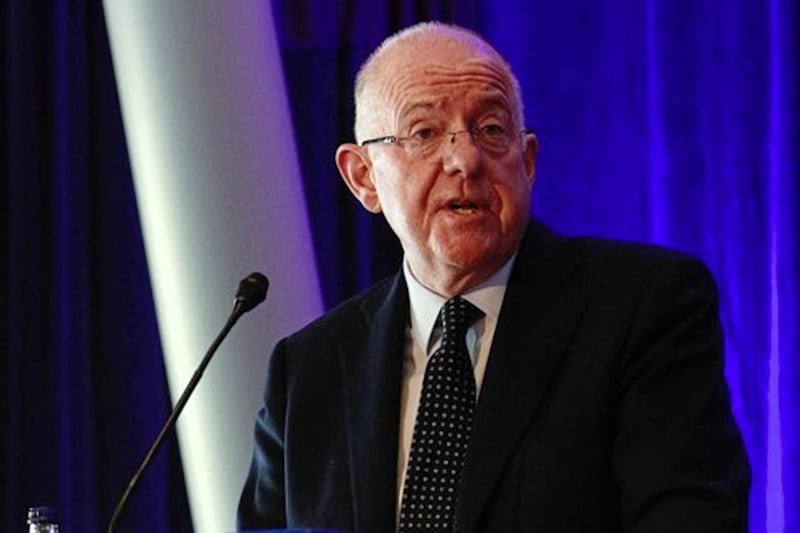PLATFORM: Charlie Flanagan, Minister for Foreign Affairs and Trade
In the deputy First Minister’s letter of resignation early this week, he indicated that his party would not re-nominate anyone to the office within the available period, thus triggering assembly elections.
That position has been re-stated by his party colleagues in recent days and it therefore seems highly likely that by Monday evening the Secretary of State for Northern Ireland will be required, in accordance with his statutory duty, to set a date for elections and dissolve the assembly.
There will always be local party political disagreements on devolved issues, and these are not matters for me or the Irish government to comment on.
However, as a co-guarantor of the Good Friday Agreement and the peace process that it sustains, my government has a solemn responsibility to ensure that the agreement is fully respected, upheld and implemented.
We are all part of an ongoing process that has seen significant positive change in Northern Ireland since 1998.
This has required compromise, generosity and leadership, especially from politicians here in the north, supported by both governments.
For over 30 years we have witnessed courage and integrity from politicians on all sides of the community. These have allowed previously unimaginable gestures of reconciliation and generosity which give all of us hope for the future – not least those made by Martin McGuinness in his decade of service as deputy First Minister.
The current political crisis is not the first we have collectively encountered over the last 19 years.
Successive Irish governments have played their role on each occasion to ensure that the political process can move forward on the basis of the institutions, principles and procedures of the Good Friday Agreement.
While there have undoubtedly been challenges and frustrations on all sides, this process has deepened the peace, supported reconciliation, and consolidated political institutions that - whatever your politics - are agreed and representative.
We must not lose sight of those achievements in the weeks ahead.
As the current difficulties are worked through, it is of the utmost importance that all parties bear in mind the principles of mutual respect, partnership and equality, which underpin the Good Friday Agreement, and through which so much has been achieved.
I am acutely conscious that significant aspects of the Good Friday Agreement and successor agreements have still to be implemented. Indeed the Irish government shares the frustration that this deficit has caused and has continually sought to use our influence to move things forward.
During my time as minister there is no single issue to which I have devoted more time than addressing the legacy of the past.
I sincerely believe that the work undertaken by the parties and the governments since the Stormont House Agreement in 2014 has brought us to the cusp of being able to establish a comprehensive institutional framework to deal with legacy issues.
Ten years on from the Eames/Bradley report, this remains a matter of huge importance, for victims and survivors and for broader society. It would be shameful if, as a result of the present political impasse, this valuable work lost momentum.
Agreement
The Stormont House Agreement also directly addressed a number of the outstanding commitments from previous agreements.
Specifically the British and Irish governments endorsed “the need for respect for and recognition of the Irish language in Northern Ireland” and all parties committed to “serving the people of Northern Ireland equally, and to act in accordance with the obligations on government to promote equality and respect and to prevent discrimination; to promote a culture of tolerance, mutual respect and mutual understanding at every level of society”.
Unfortunately these renewed commitments, which go to the heart of the Good Friday Agreement, have not been adequately demonstrated and that is something which must be addressed if the devolved institutions are to thrive.
These outstanding commitments are not the property of one side of the community, of any political party, or indeed of either government, but part of the careful balance achieved in 1998 and endorsed at the ballot box by people all over this island.
Now - as disagreements, frustrations and controversies have brought things to the point of an election - it is worth reminding ourselves what has been achieved in moving definitively beyond the horrors and divisions of the past.
The issues to the fore at present, and many others of concern to people in Northern Ireland, can be effectively addressed through the devolved institutions – but only if they operate on the basis of the principles of respect, equality and partnership which are at the heart of the Good Friday Agreement.
It is never too late to make a fresh start.








